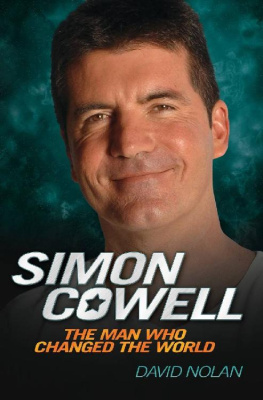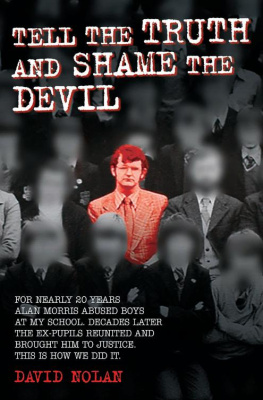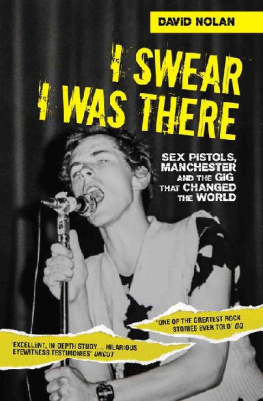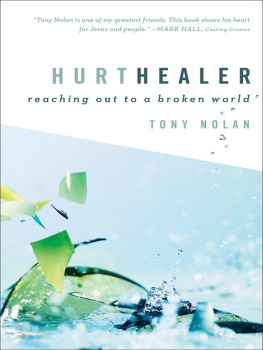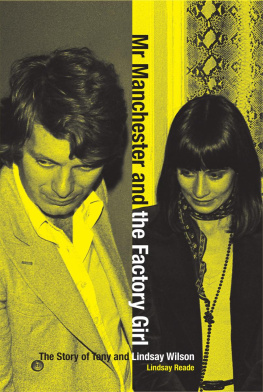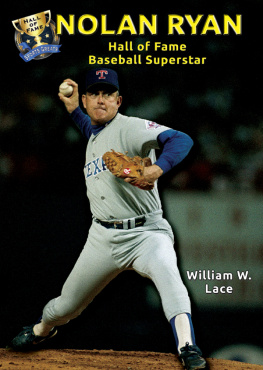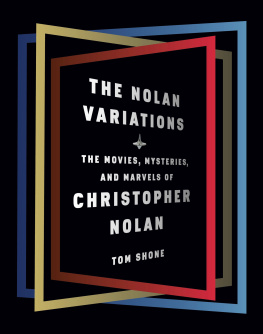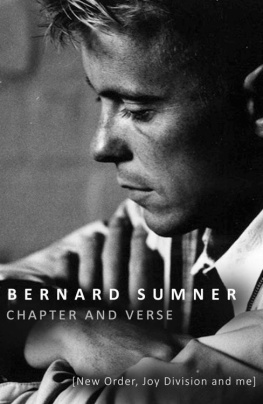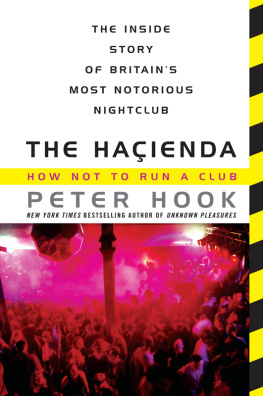T he first time I met Tony Wilson, he didnt say, Hello or How are you? He said, Ive just been to the most amazing museum space do you know New York?
One nil to Tony.
I then had to hand him a cheque to pay him for the television interview we were about to do, despite the fact we were both employees of the company who were going to broadcast it Granada Television in Manchester. Tony was in a row about money with Granada and was insisting on being paid up front before he held forth on any subject, even if it was for a colleague.
In the space of a few moments I got a small insight into Tonys world: intellectual pretention, argy-bargy and problems with money. Not a bad introduction to his many lives in just two minutes.
Like many people, I felt like I already knew him. This was the bouffant-haired newsreader who had provided me with the first glimpse of my about-to-be-favourite bands on TV. This was the man whose record company made singles that were often better to look at than they were to listen to. This was the man whose nightclub Id begun visiting in its opening week in 1982. This was the man I was soon to be sharing an open-plan office with. I felt like I knew him.
Then I started work on this book. Turns out I didnt know him at all.
The following people definitely helped me know more about Tony Wilson. That there are musicians, DJs, journalists, TV executives, writers, actors, a former Blue Peter presenter, a doctor, a forensic scientist and a man with a papier-mch head among them says a great deal about the rich palette of Tonys life. So my thanks to: Mark Alderton, Chris Batten, Peter Berry, Gordon Burns, Frank Cottrell Boyce, Larry Cassidy, Vin Cassidy, Sebastian Cody, Kieron Collins, Kevin Cummins, Pat Dilibero, Ray Fitzwalter, Bob Greaves, Dave Haslam, Professor Robert Hawkins, Alan Hempsall, Konnie Huq, Kathleen Houghton, Don Jones, Tadeusz Kasa, Howard Kingston, Geoff Knupfer, Chris Lee, David Liddiment, Michelle Mayman, Andy McCluskey, Rob McLoughlin, Peter McNamara, Bruce Mitchell, Martin Moscrop, Eamonn ONeal, Steve Panter, Graeme Park, Craig Parkinson, Max Steinberg, Paul Ryder, Chris Sievey, Mike Spencer, Peter Trollope, Paul Welsh, Jenny Winstone and Dick Witts.
Thank you only more so to Tonys partner Yvette Livesey. Truly a Superstar DJ
Also: Laura Baynam-Hughes, Polyanna Clayton-Stamm, John Cooper, Ian Cranna, Peter Davis, Simon Donohue, Bob Gallagher, Cerys Griffiths, John Jeffay, Ian Johnsen, Roger Platt, Paul Routledge, Lucian Randall, Lindsay Reade, Tom Smetham and Dave Woodward for their help in making things happen.
Oddly enough, just as I was finishing this book, I had a stroke. That was a funny day. So thank you to the staff at Stepping Hill Hospital, Stockport for looking after me.
Author interviews with Tony Wilson carried out in 1998, 2001 and 2006.
David Nolan Manchester, England
August 2009
What does education do? It makes a straight-cut ditch of a free, meandering brook
HENRY DAVID THOREAU
I n an opening flourish of contrariness that would become a constant throughout his 57-and-a-half years, the man who became known as Mr Manchester wasnt from Manchester at all. Anthony Howard Wilson was born in Hope Hospital, Salford on 20 February 1950. The fact that he was actually born in the city next door to the one with which he is associated was something he never tired of pointing out to those unfortunate enough to make the mistake. Leaning forward surprisingly tall and broad Wilson would fix you with a firm dose of eye contact across the top of the discreetly expensive glasses on the tip of his nose. Actually, darling Im from Salford. In 1978 he introduced viewers of his regional arts slot on Granada Television to a new band. They were called Joy Division. He explained they were from Manchester, apart from the guitarist, who was from Salford: Very important difference.
Plonked directly to the west of Manchester, Salford gets very uppity if you overlook the fact that it is a city. Its been one since 1926 yet in over 80 years no one has managed to provide it with a city centre. Its never had one and there are no plans to get one. Its a contrary place is Salford and it breeds contrary people.
Salford is a multi-skiller. Its many and varied districts offer a different facet of the city depending on which area you go to. Theres the streetwise, unorthodox Ordsall and Weaste, the leafily genteel Worsley and Boothstown, and the shiny, envy-inducing Quays. Just looking at one and accepting it as being representative would not do the place justice. Today, as you cross the border into the city, gaudy pink signs erected by the council inform you that you are now IN SALFORD. The signs manage the difficult trick of being informative, attention-grabbing, slightly incongruous and rather camp all at the same time.
Tony Wilsons forbears were busy folk; European of stock and shopkeepers by nature. My grandfather was German, Tony told Eyewitness in Manchester in 1998. He came here in 1901. First he went to America, then came back to Salford. Were the great immigrant city foreigners are welcomed, its so hospitable to outsiders, they thrive and do so well, they become part of the city.
Tonys grandfather, Herman Maximillian Knupfer, married four times after he arrived in Britain from Freiberg. Three times he was made a widower; he was in his late seventies when he married for the final time on the Isle of Man, where hed moved for tax reasons. He had seven children through his life: Karl, Edgar, Doris, John, Lilly, Herman and Rose. The children of Hermans first and second marriages were to form the unusual family unit that surrounded the young Tony Wilson. Karl came from the first marriage and Edgar and Doris from the second.
Herman Knupfer was apprenticed to a Salford jeweller and watchmaker called Mr Ranks, with premises at 238 Regent Road, the main drag from Manchester city centre into Salford. When Ranks died, Herman got the money together to take over the business.
Salford wasnt such a welcoming city for German immigrants after the outbreak of World War I and the windows of Herman Knupfers jewellery store were smashed in. Karl had joined the British army and a picture of him in uniform was swiftly displayed in the repaired window. The attacks stopped as quickly as they had begun.
The mini-business empire of the Knupfers expanded. To this day, the name is a familiar one to older Salford residents who recall the entrepreneurial family and the service they provided to the people of the city. Karl took over the shop and Edgar opened another jewellers at nearby Cadishead before shifting nearer the other Knupfers to a shop at 80 Church Street, Eccles. Both stores were upmarket and they would answer phone calls to the shops with the words: Knupfer Brothers Salfords leading jewellers
Doris was more than a match for the male Knupfers and opened up a tobacconist at 448 Regent Road. Shed married a man named Tom McNulty and the shop bore his surname. McNulty died its believed in a motorbike crash and Doris was left a widow. By this stage, Karl had also lost his wife. Edgar would never marry.


